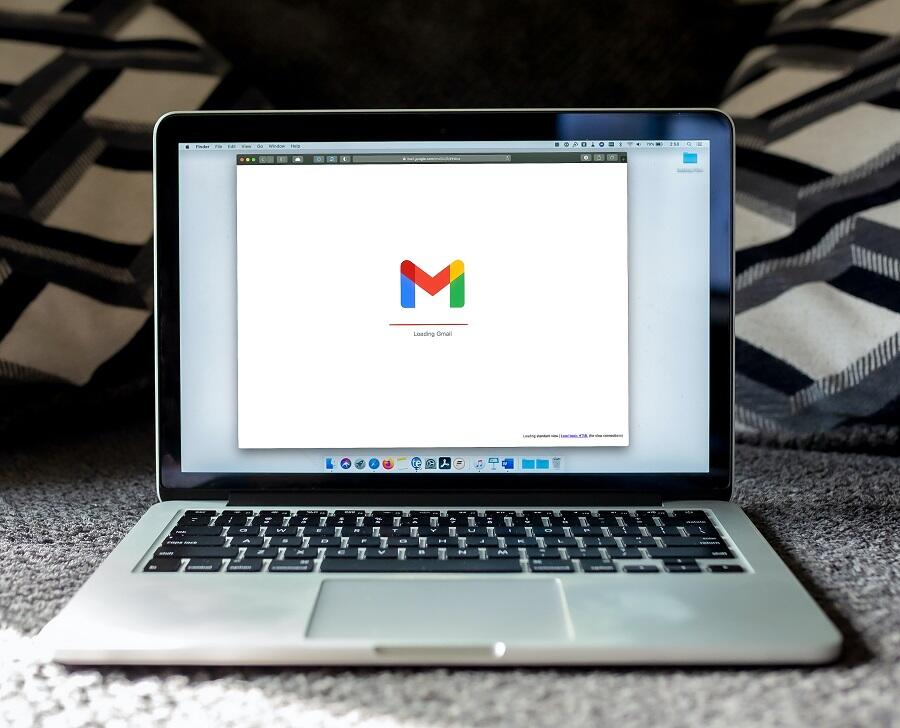After what seems like an unending job search and a tiring interview process, you finally get that verbal job offer you’ve always wanted. Yaay!
But while it’s an exciting experience, the job is not yet in the bag. You’ve got to take a few next steps to make sure your employment is formalized.
And one of such steps you need to take is to write a follow-up email after a verbal job offer.
Now let’s dive deeper into these steps and see some follow-up email examples that guarantee you the job.
So what’s the difference between a verbal job offer and a written job offer?
Verbal Job Offer vs Written Offer
A verbal job offer is an unofficial way for hiring managers to inform candidates that they’ve been offered employment for the role they interviewed for. It can either be done on the spot or over a phone conversation later and date.
On the other hand, a written job offer is an official offer letter that could either be a physical or electronic document. It confirms your employment and usually contains your salary, working hours, holidays, and other benefits.
However, this comes after you’ve accepted your verbal offer.
So what do you do after getting a verbal offer?
What Should You Do Before and After Getting A Verbal Offer?
1. Prepare yourself for the call
Often, the hiring manager won’t offer you the job immediately after the interview.
They may have to interview other applicants to know the best fit for the role. And the interview process may take some time, so you’ll have to wait a little longer.
In this case, prepare yourself mentally for when the call will come in. You may be excited about your new job but not accept it yet.
2. Acknowledge the job offer verbally
So when the hiring manager finally rings your phone with the verbal offer, show your gratitude for the line you’ve prepared.
Thank them for the opportunity with an upbeat tone. You could say something like this:
“Thank you so much for this opportunity. I’m very excited you selected me for this position.”
And if you’re given the job on the spot, don’t forget to smile.
3. Ask for more time
After showing your appreciation, you can think about the offer before accepting employment.
Although, you should have thought this through before or during the application. But there’s no harm in doing it now as you may have seen or gotten other job offers elsewhere.
So you can then continue with this polite line:
“… Because of the various factors involved, I would like to take a day or two to think about this before responding. Is that okay?”
Or if you’re married or in a relationship that may be affected by this job, you could say:
“… I would like to take a day or two to discuss this with my partner. Can I get back to you after that?”
It’ll also be great to ask them for a timeframe for accepting the offer. You don’t want to tell me you’ll respond when you need the role filled immediately next week.
How to Respond to A Verbal Job Offer with An Email or Letter (Email Templates)
Now you’ve gotten the verbal job offer and made your employment decision. You can then contact the hiring manager using emails.
1. Thank the employer and accept the job offer in writing
Now it’s time to accept the offer in writing officially. Like you did verbally, you’re going to thank the employer for giving you the opportunity.
You can either send a letter or an email.
Also, show him your enthusiasm for the role and how excited you are to be a part of his team and company. Here are two examples you can steal.
I would love to thank you for offering me the role of (role title) at (company name). I appreciate the time you and your team took to interview me, and I’m very excited I will be a part of this team and great company.
Now I am ready to meet your team and begin working, so I am writing to know the next step.
Please let me know if you need any more information via email or a phone call. Otherwise, I await further instructions on how to move forward.
Thanks again for your support and the job offer.
Yours sincerely,
{Your name}
[/su_note]Follow-up email after verbal job offer (Thank you template 2)
Hi {Hiring manager’s first name},
Thank you so much for hiring me for your (role title) in your (Company name). I am very grateful for the job offer, and I really can’t wait to begin working with you and the other members of your team.
I am looking forward to starting my new role and impacting your company. So if you need any more information, don’t hesitate to contact me. Otherwise, I would like to know the next step to formalize the process.
Thanks once more for this opportunity!
Kind regards,
Note: Always start your emails or letters with a polite greeting. Also, refrain from using people’s titles, especially when you’re addressing a woman, and you’re not sure if she’s married or not.
2. Send a follow-up letter requesting a written offer
If you don’t respond to the hiring managers within 2 – 3 days, you can follow up with the employer and request a special. It’s possible that the hiring manager has been very busy, or your email or letter is buried in a pile.
So the request you’re going to make will be to ask for a written job offer. It shows your enthusiasm to begin working with the company. Here’s an example follow-up email.
Follow-up email after verbal job offer (Request for written employment offer)
Hi {Hiring Manager}.
I know you’re very busy, but I wanted to thank you again for the job offer you gave me.
And I thought to reach back out again as it’s been a couple of days since I wrote you my acceptance letter without getting a reply. I would love to meet everyone and begin training with your team.
So would it be possible for you to send me a written offer letter? And if you would love to meet me again to get some more information, I would be happy to speak with you again.
I am looking forward to your reply.
Thank you so much for your time.
Best regards,
In the email, acknowledge that you’re aware that the hiring manager is busy before stating your case. It makes them more receptive to your letter.
3. Send another follow-up email requesting a timeline
After sending that written job offer request email, give the hiring manager some time to respond – say another 3 days a week. By this time, you should’ve gotten a reply from the employer.
If not, it’s possible the hiring manager’s spam filter could be blocking your email (highly unlikely, though).
It’s also possible they’re getting your letters and putting reading or replying it off until they completely forget you sent an email. So being consistent puts you top of mind.
It also shows your determination and dedication to start work.
Here’s a sample email you can send.
Follow-up email after verbal job offer (Request timeframe)
Hi {First name},
I am reaching out again to show you how grateful I am that you selected me for your company’s (role title) position.
I appreciate the time you took to review my details, interview me, and give me the chance to express myself during the interviews. It says a lot about {Company name}, and I am eager to begin working with you.
However, I have been writing you without getting a response, so I wondered if you found time to read my previous email. Or have you withdrawn my application and filled the position with another candidate?
Would you please let me know if this is the case or whatever the status of my application is?
Thanks for your time once more, and I await your reply.
Best regards,
4. Review the written job offer
If you still haven’t heard from the company, you may want to go to their office and ask questions in person.
Usually, you will reply with your written offer or say they chose another applicant. And if the latter is the case, you’ll have to look for other opportunities in other companies.
However, if you receive your acceptance letter in writing, you’ll want to review things like your salary, bonuses, other perks, and vacation.
You can check sites like Payscale and Glassdoor to see if your earnings tally with the industry standard.
However, don’t only consider the salary if yours is slightly lower than the industry standard—also, factor in other benefits like the length of your holidays, insurance, etc.
Here are the 25 best free online courses with printable certificates to help you acquire more skills to boost your career chances.
5. Negotiate a counter offer
And if the company is going to pay you lower than your expectation, feel free to negotiate a contract that will be fair for both parties.
So you’ll have to create a counter offer letter.
In the email or letter, you will also express your appreciation for the offer and your willingness to help the company grow. Then you’ll go on to list a few of your selling points and how you plan to use them to the company’s advantage.
Then go ahead and state your counter offer. Do not make the mistake of requesting one that’s unreasonable or unrealistic for the company’s size.
Here are two email templates you can use.
Follow-up email after verbal job offer (Negotiating a counter offer)
Hi {Manager’s first name},
Many thanks for taking the time to respond. I appreciate you allowing me time to consider the offer.
So I am writing to tell you how inspired I am to accept the offer of (role title) at (Company name).
However, after going through the offer, I would like to speak with you regarding the compensation package.
Is it up for discussion?
Sincerely yours,
When you politely initiate the issue, the hiring manager will be more receptive to your ideas. Then wait for the company to respond before suggesting better pay.
Hi {Hiring manager’s first name},
Thanks for agreeing to discuss this issue with me.
Your offer is a bit less than what I expected. I made {salary} a year in my former job, and I will consider requests starting from this amount.
We have established that my role at (Company name) entails I will {list the 2 most important things you’re expected to do in the job}. And I am bringing a wealth of experience to make this company more competitive and hit its targets.
I am already drawing up strategies to scale these processes to make us more productive and yield better ROI than the previous quarter.
Also, as a passionate {your qualification} with over {x} years of industry experience, your company stands to benefit a lot from my insights and fresh perspectives. So I feel it is only fair I am remunerated accordingly.
I have already received a few job offers elsewhere, but I love the ambition and culture of this company as it aligns with my goals and values. So I am putting others on hold till we come to a decision that works best for both of us.
I am looking forward to hearing from you soon with a better offer.
Kind regards,
6. Notify other potential employers of your decision/ decline the offer
Hi {Recruiter’s name}
I wanted to express my gratitude for allowing me to speak with you. I truly enjoyed meeting you and your team at the last interview.
I am sorry to let you know that I am respectfully withdrawing my candidacy as I have been offered a position that is a better fit for my skills.
I wish (Company name) the best and hope that we can work together in the future.
Once again, thanks for this opportunity.
Sincerely yours,
7. Send a ‘Thank You’ email
So after telling all your potential ‘suitors’ off, you can quickly thank the hiring manager via email. It shows your excitement for the new adventure, and it also keeps you in terms with the company.
Hi {Recruiter’s name}
I wanted to formally thank you for hiring me for the (role title) position. I am excited that I will become a part of your team and contribute to the growth of {Company name}.
Please reach out if you need more information from me.
Thanks again for the opportunity, and I look forward to starting my new position.
Sincerely,
FAQ’s
Typically, it can take around 2 -3 days to get a written offer letter after a verbal offer. However, some companies can reply within a year. But if you don’t get a response from the company after 3 days, reach out to the hiring manager again.
Can you negotiate after a verbal offer?
It’s wrong to negotiate your salary after a verbal offer. Don’t negotiate your compensation after an oral bid until you’re guaranteed the job with a written request.
How do you politely respond to a job offer?
You can politely accept a job offer by following these steps when writing your email or letter;
- Formally and courteously accept the job offer with gratitude.
- Confirm the details of the position.
- Clarify all the information that is not very clear to you.
- State the expected start date.
- End by thanking the HR manager.
Conclusion
Getting a verbal job offer doesn’t guarantee you the job. Following up could keep you top of the employer’s mind and increase your chances of getting hired.
But if you don’t hear back from the employer, browse through these free certification courses to boost your chances of getting employment.
Related:






Leave a Reply